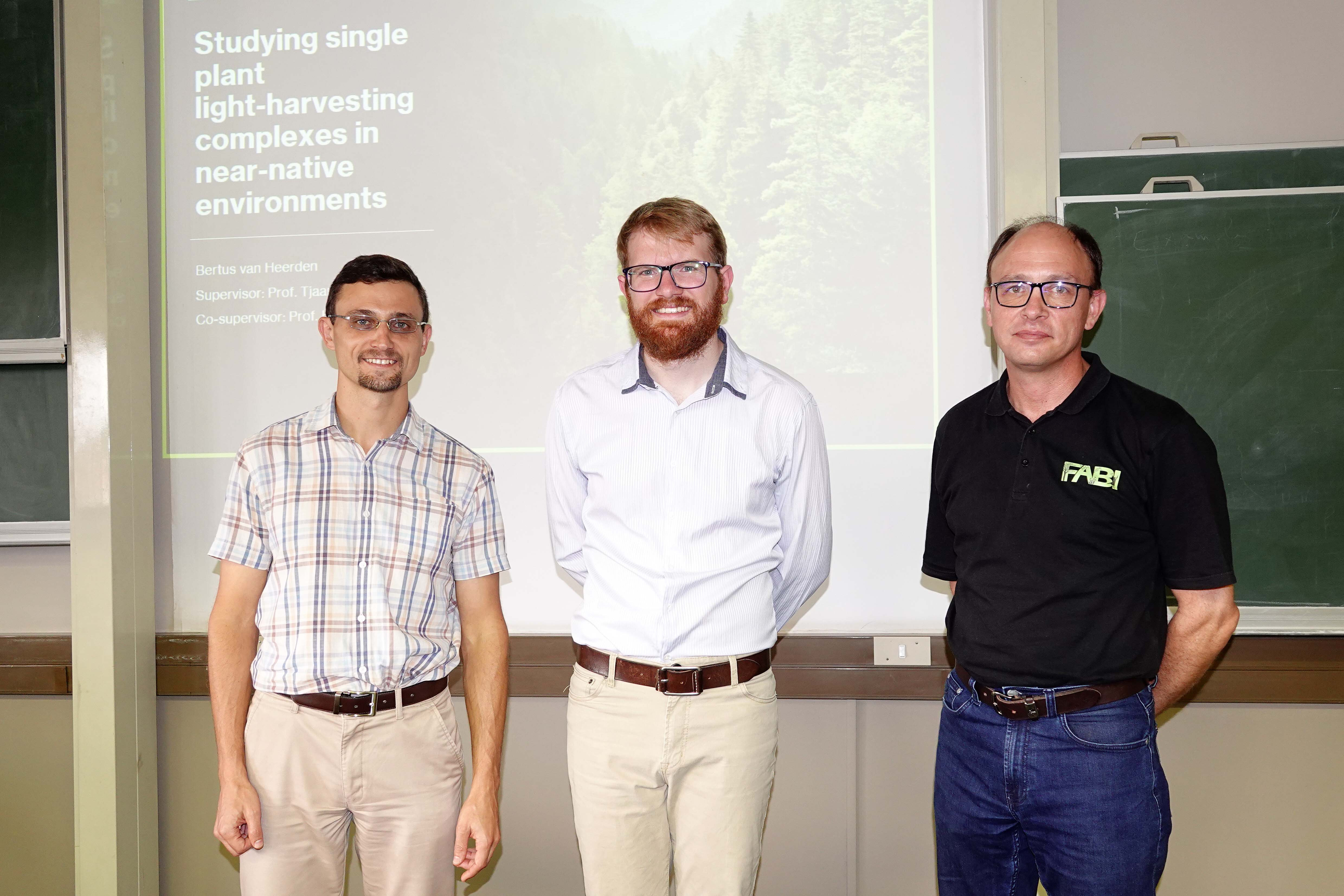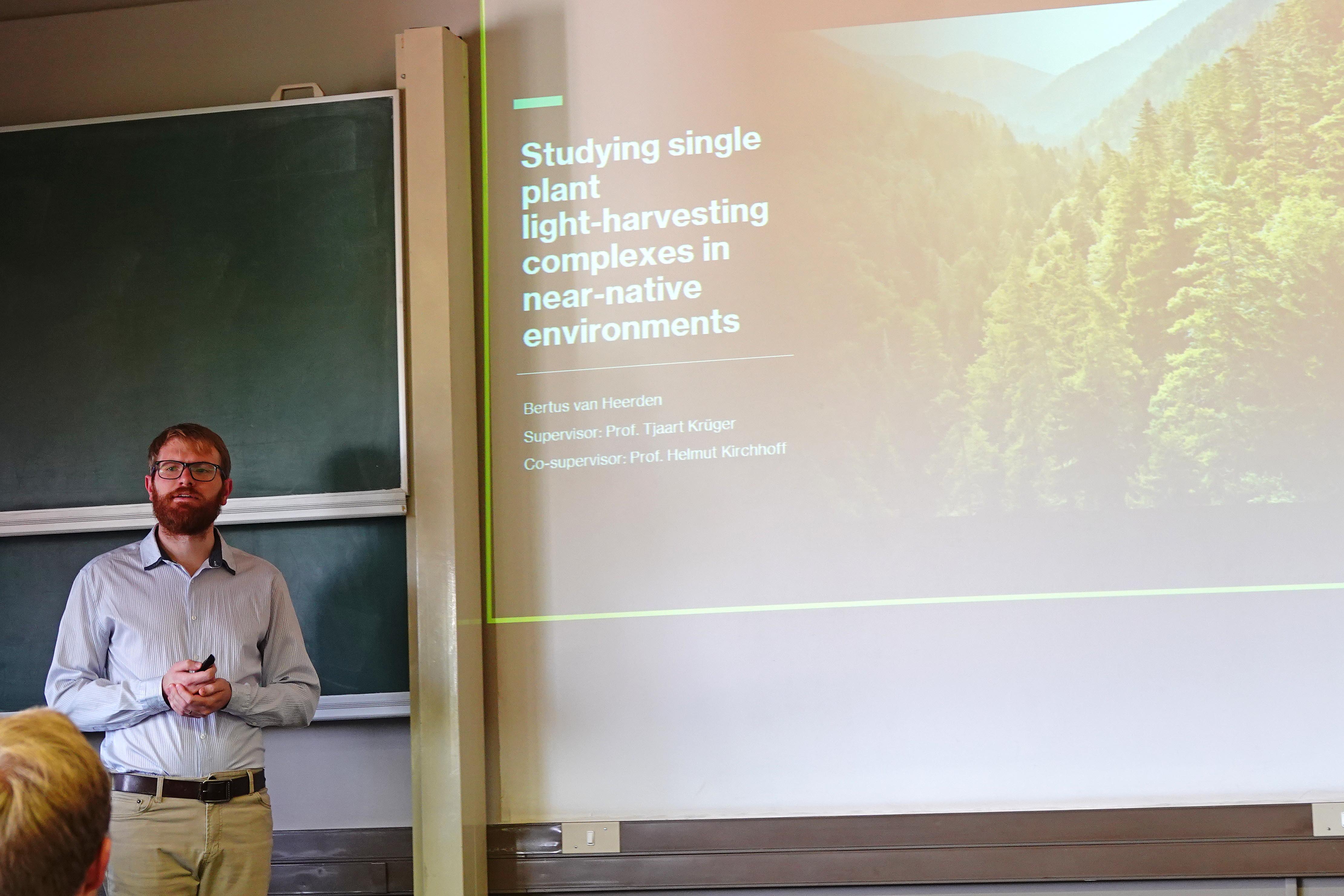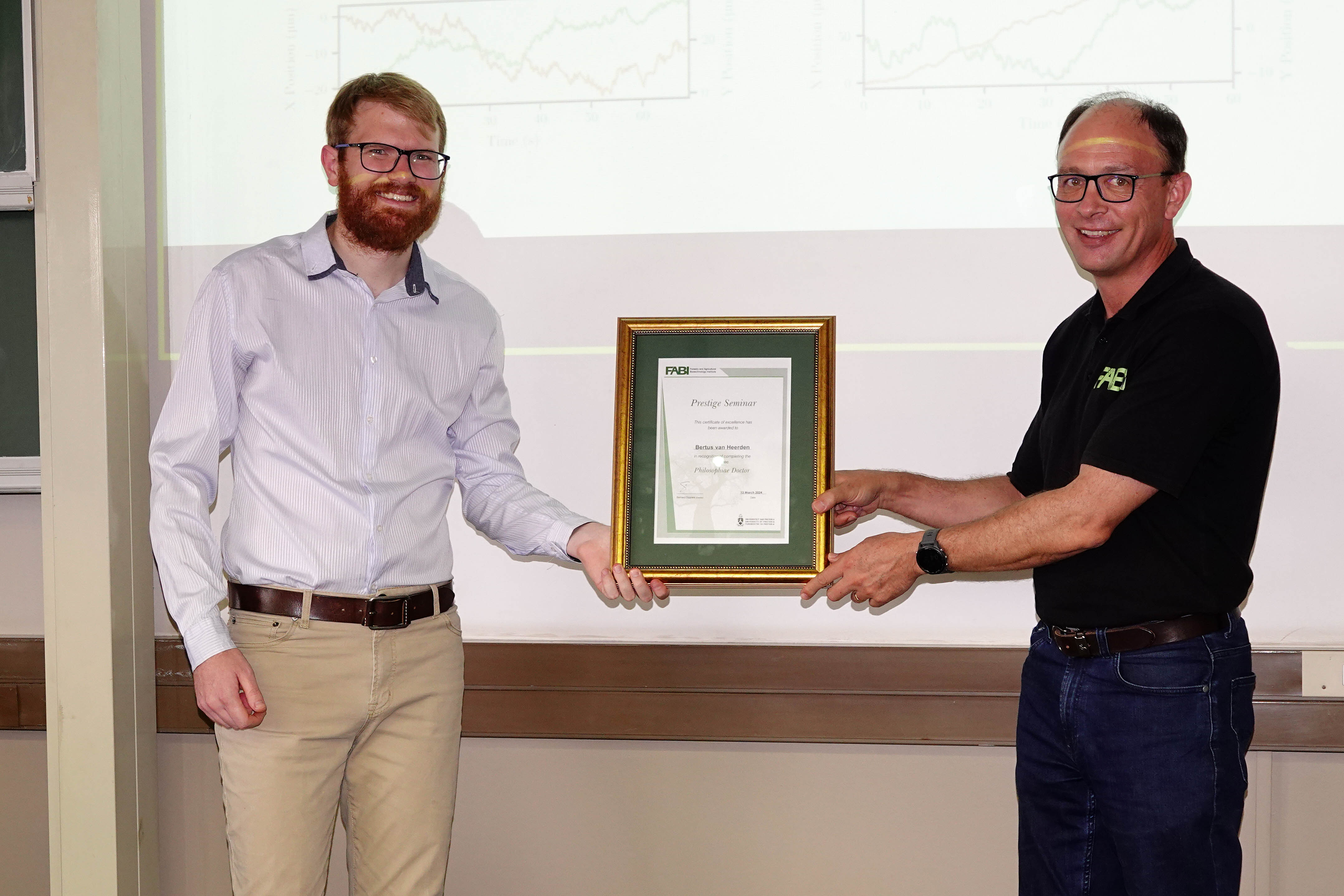Congratulations to FABI's first Physics PhD graduate, Bertus van Heerden! 2024-03-18
Congratulations to Bertus van Heerden on the successful completion of his PhD under the supervision of Prof. Tjaart Krüger and Prof. Helmut Kirchhoff (Washington State University, USA). He presented his Prestige Seminar “Studying single plant light-harvesting complexes in near-native environments” in the Department of Physics on 13 March. The external examiners for his PhD were Prof. Jörg Enderlein, of Georg August University in Göttingen, Germany, and Prof. Kevin Welsher, of Duke University, USA. In line with FABI’s transdisciplinary research focus, Bertus is the first student affiliated with FABI to complete his PhD degree in the University of Pretoria's Department of Physics.
Bertus’s research work in his PhD has been recognised by numerous awards. He was conferred the NRF's prestigious Research Excellence Award for Next Generation Researchers in 2023 and the recipient of the FABI Best Publication Award in 2022. Bertus also won a Fulbright Scholarship that allowed him to undertake a research study visit to the Washington State University in 2022-2023.
Bertus’s PhD research saw the development of real-time feedback-driven single-particle tracking (RT-FD-SPT) and proteoliposomes, and their application to the light-harvesting complex II (LHCII) of plants. Photosynthesis in plants begins with light absorption by light-harvesting complexes, the main one being LHCII. This protein is a key component of a critical photoprotective process called non-photochemical quenching (NPQ). Single-molecule spectroscopy (SMS) has revealed that isolated LHCII complexes have complex, individual behaviour, and this behaviour can be directly related to NPQ.
Different RT-FD-SPT methods were investigated using theoretical modelling, illuminating fundamental aspects of performance and aiding in the selection of an appropriate method. New data analysis coding was developed for fluorescence lifetime analysis and applied to measurements on LHCII. The first measurements of photon antibunching from LHCII were reported in this study. An RT-FD-SPT setup with unique spectroscopic measurement capabilities was constructed and used, for the first time, on light-harvesting complexes. LHCII aggregation was investigated using fluorescence correlation spectroscopy (FCS) and RT-FD-SPT. Lastly, a proteoliposome protocol was optimised which allows protein-lipid interactions to be studied at the single-molecule level in realistic environments.




